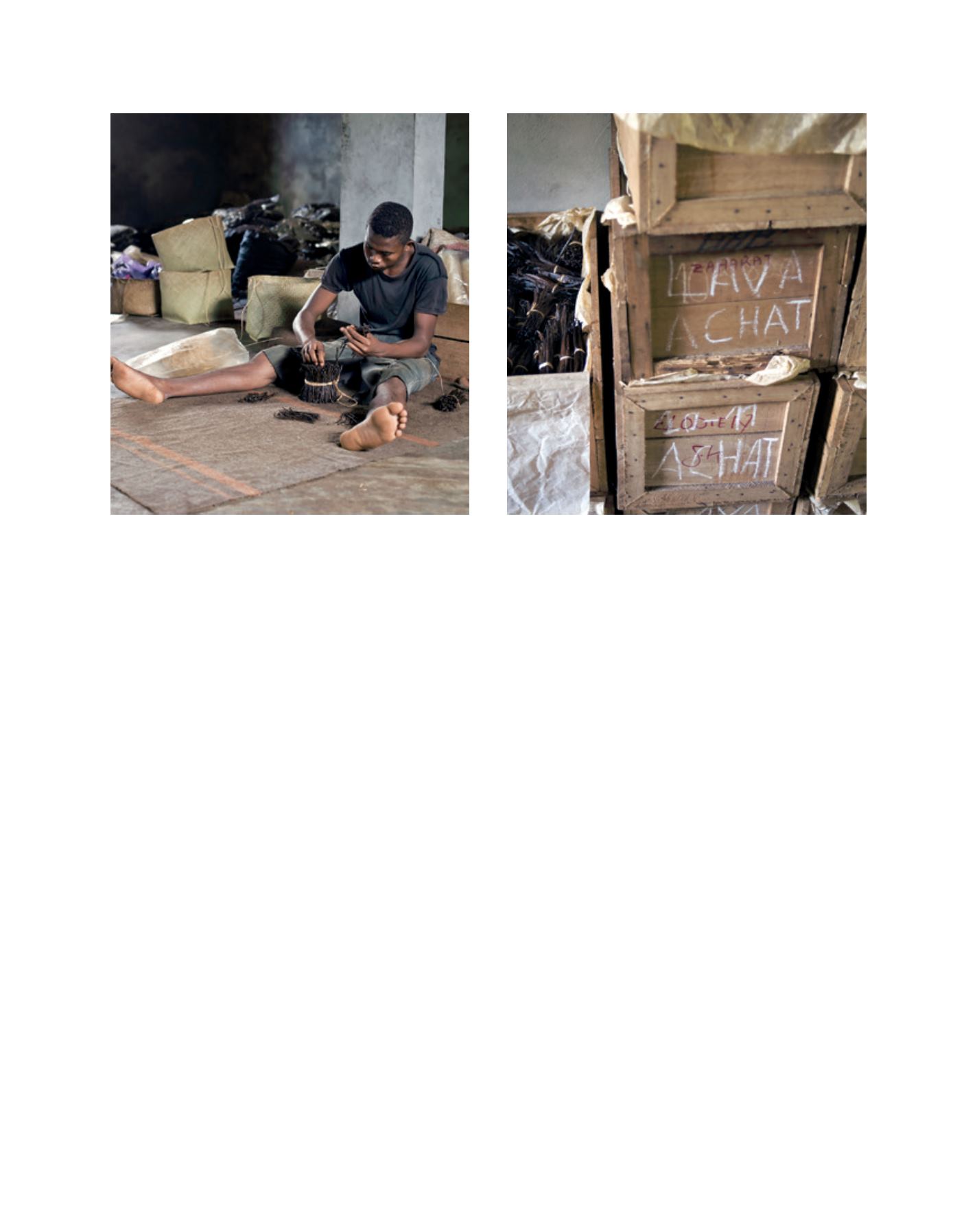

[
] 235
Image: Fairfood International
Image: Fairfood International
Vanilla is chiefly suitable for smallholder and family farmers, most of whom
use traditional farming methods
Fluctuating prices and margins are the main causes of income and insecurity
for Madagascar’s vanilla farmers
bund roads and infrastructure, Madagascar’s agricultural
sector clearly needs attention from African leaders.
Early this year, the African Union announced 2014 as the
Year of Agriculture and Food Security. This announcement
bears great significance for a continent where 75-80 per cent
of the population depends solely on small-scale agriculture,
and where most of the poor live in rural areas. This can be
a perfect opportunity for the continent’s leaders to support
Madagascar in developing some of its important agricul-
ture sectors such as rice and vanilla, and to improve market
access and regional trade for them.
The United Nations similarly proclaimed 2014 as the
International Year of Family Farming. Most international
donor agencies have already declared their recognition of the
important role of small-scale family farmers in tackling the
food security challenge and are already investing in projects
that seek to improve the lives of small-scale farmers in many
poor regions of the world. Investing in small-scale Malagasy
farmers should be seriously considered.
Following Madagascar’s political instability in 2009 and
the World Bank’s 2012 gloomy analysis of the Malagasy
economy, several international donors signalled a reluctance
to lend financial support to the country or ceased giving
it. This has taken its toll on the development of agricul-
ture and the rural poor. Notably, the International Fund for
Agricultural Development has so far funded 14 rural devel-
opment projects investing a total of US$208.3 million.
6
Most
of these projects are sectorial and focus on strengthening
farmers’ organizations, increasing poor people’s access to
rural credit, improving market access and boosting produc-
tion. Following the country’s recent presidential elections,
the political situation is expected to improve. In February
2014, the World Bank approved US$10 million to assist in
improving health and food security in Madagascar. More
international donors can therefore seize the opportunity to
scale up their support for Madagascar’s agriculture.
International non-governmental organizations (NGOs)
can help farmers and empower them with negotiation and
campaigning skills to advocate for themselves. In Madagascar’s
vanilla sector, this can be an important intervention for small
farmers to have a voice and be able to effectively engage power-
ful value chain players on pricing and other socioeconomic
issues. In addition, international advocacy organizations can
help by directly influencing the big multinational companies
and flavour houses to improve incomes for Madagascar’s
vanilla farmers. In late 2013, Fairfood International
7
started
its advocacy work in order to encourage the biggest multina-
tionals and flavour houses sourcing vanilla from Madagascar
to improve their policies and practices so that they benefit the
small farmers and catalyse a positive change within the vanilla
industry in Madagascar.
As the world looks towards 2050, when more than 9 billion
people will need to be fed, the burden will rest on the shoul-
ders of small-scale farmers all over the world. It is therefore
important that key players in the food system – companies,
but also NGOs, governments and international donors –
enable these farmers to enjoy socioeconomic fairness in the
food system. While we continue to enjoy our vanilla-flavoured
ice creams, cakes and chocolates, key players must act with
urgency to overcome the shameful paradox in Madagascar’s
vanilla sector by implementing the efforts outlined above.
This will go a long way to establishing sufficient financial
resources for Malagasy vanilla farmers and create a safety net
to lift them out of poverty and food insecurity.
D
eep
R
oots
















